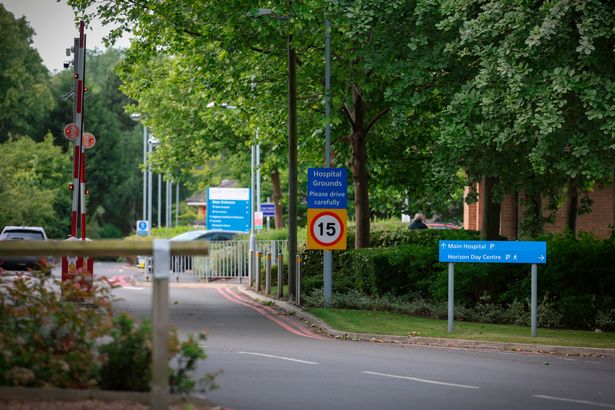The university has been cautioned its closure plans could have terrible, and long-lasting effects
04:00, 12 Nov 2025Updated 07:39, 12 Nov 2025
 Trent Building at The University of Nottingham(Image: Joseph Raynor/ Nottingham Post)
Trent Building at The University of Nottingham(Image: Joseph Raynor/ Nottingham Post)
The University of Nottingham’s plan to end two nursing courses has been slammed by critics who say it comes at the worst time for Nottinghamshire’s struggling healthcare services, which are facing the NHS‘ largest maternity review and an inquiry into the Nottingham attacks.
The university is a significant supplier of new recruits to both Nottinghamshire Healthcare NHS Trust, which has been ordered to improve following paranoid schizophrenic Valdo Calocane’s killings in 2023, and Nottingham University Hospitals NHS Trust, which is under intense scrutiny as part of senior midwife Donna Ockenden’s review into baby deaths and injuries on its wards.
The university has defended what it called a “really difficult” decision to freeze intakes to a number of courses, claiming the pausing and planned closure of them was a response to the Government’s call for universities to specialise and a measure that countered rising costs and a proposed levy on international students.
However, staff and union representatives have warned that its plan to pull back from training nurses will have profound consequences, compounding serious problems with healthcare in Nottinghamshire.
Ella Guerin, University and College Union (UCU) representative for the school of health sciences, claimed the region’s cash-strapped and heavily criticised NHS trusts would suffer greatly from missing out on University of Nottingham-trained nurses in the future.
“Most of our students when they graduate will stay locally,” said Ms Guerin, who herself had moved to Nottingham to study and never left.
The mental health and children’s nursing courses were “massive feeders” for Nottinghamshire Healthcare, which runs the region’s mental care, and Nottingham University Hospitals, which runs Queen’s Medical Centre and City Hospital, she explained.
“It will be hugely impactful for NUH, particularly because of those challenges the Ockenden report is picking up,” Ms Guerin said, referring to the maternity review that is expected to examine the cases of 2,500 families.
Ms Guerin added that the university’s decision would “undermine” review chair Ockenden’s calls for a push to recruit new nurses and improve the capacity of neonatal services.
“They [challenges with maternity and mental health care] are national issues, but they are particularly acute locally,” she said.
The union rep added that the trusts would also miss out on thousands of pounds for every placement student lost, which would also have an impact on resourcing patient care.
Ms Guerin said that members of staff felt personally and professionally “devalued” by the university’s announcement and feared for their jobs.
UoN has not said whether its proposed cuts would result in any job losses, but the UCU spokesperson added she believed “the writing was on the wall”.
Hundreds of employees have been made redundant by the financially-struggling university in recent years, prompting ongoing strike action by the UCU over its employer’s drastic Future Nottingham restructuring.
 UCU members and supporters picket outside of the University of Nottingham’s University Park Campus earlier this year(Image: UCU)
UCU members and supporters picket outside of the University of Nottingham’s University Park Campus earlier this year(Image: UCU)
UoN has said demand for its mental health nursing course has halved over the past three years, but made no similar comment on the student numbers of children’s nursing – which Nottinghamshire Live understands is still popular with enrollees.
A source, who was familiar with the “significant” impact the changes would have on NHS staffing, said the university’s decision to cut down its nursing courses was indefensible.
The person said staff at Nottinghamshire Healthcare and Nottingham University Hospitals trusts had already expressed concerns about the changes, which they argued were partly down to “academic snobbery” towards nursing.
“Now is an unforgivable time to pull away from the NHS trusts in Nottinghamshire – when they need it most. I’m appalled by it,” they said.
While mental health nursing is less popular than UoN’s child-focused nursing course, the source said the university should not lose sight of its “civic mission” of training future NHS healthcare workers due to financial pressures.
On Tuesday, November 25, the university’s council – its board of trustees – will decide whether to initiate discussions with staff and trade unions regarding the proposed permanent closure of courses.
The Russell Group institution said it had suspended courses based on student demand and market share, but also on research income and performance against competitors.
Before the two nursing courses were suspended the university’s website boasted it was joint fourth in the UK and 38th in the world for nursing, further trumpeting that it was at the “forefront of mental health research”.
Nottinghamshire Healthcare said it was supporting staff currently enrolled in courses at the university and suggested it would work with other educators to try to replace UoN’s students.
 Highbury Hospital, where Nottinghamshire Healthcare NHS Foundation Trust is based, in Highbury Vale, Nottingham(Image: Joseph Raynor/ Reach PLC)
Highbury Hospital, where Nottinghamshire Healthcare NHS Foundation Trust is based, in Highbury Vale, Nottingham(Image: Joseph Raynor/ Reach PLC)
“Training mental health nurses is critical to the continuous development of a workforce with the experience and expertise to deliver skilled interventions to the communities we serve,” Diane Hull, the trust’s chief nurse, said.
“We want to assure people that the trust continues to work with other local and national education providers offering mental health nursing courses and we will continue to offer a range of placements, support and opportunities.”
Nottingham University Hospitals declined to comment.
The University of Nottingham said it would continue to work closely with NHS trusts affected by the change and still train doctors, midwives and adult nurses.
A spokesperson said: “There has generally been lower demand for nursing disciplines and in order to fill places we have had to lower tariffs for some of these courses. Mental health nursing student numbers have halved over the past three years.
“We will do everything we can to minimise the impact on students to ensure they meet their learning outcome.”
